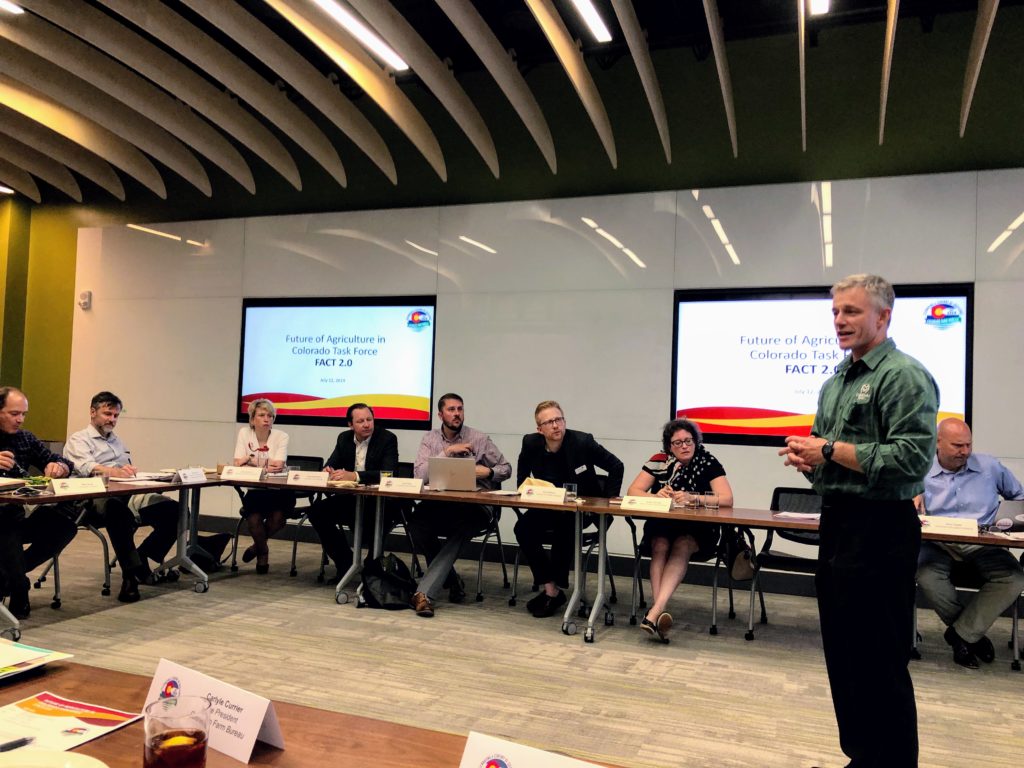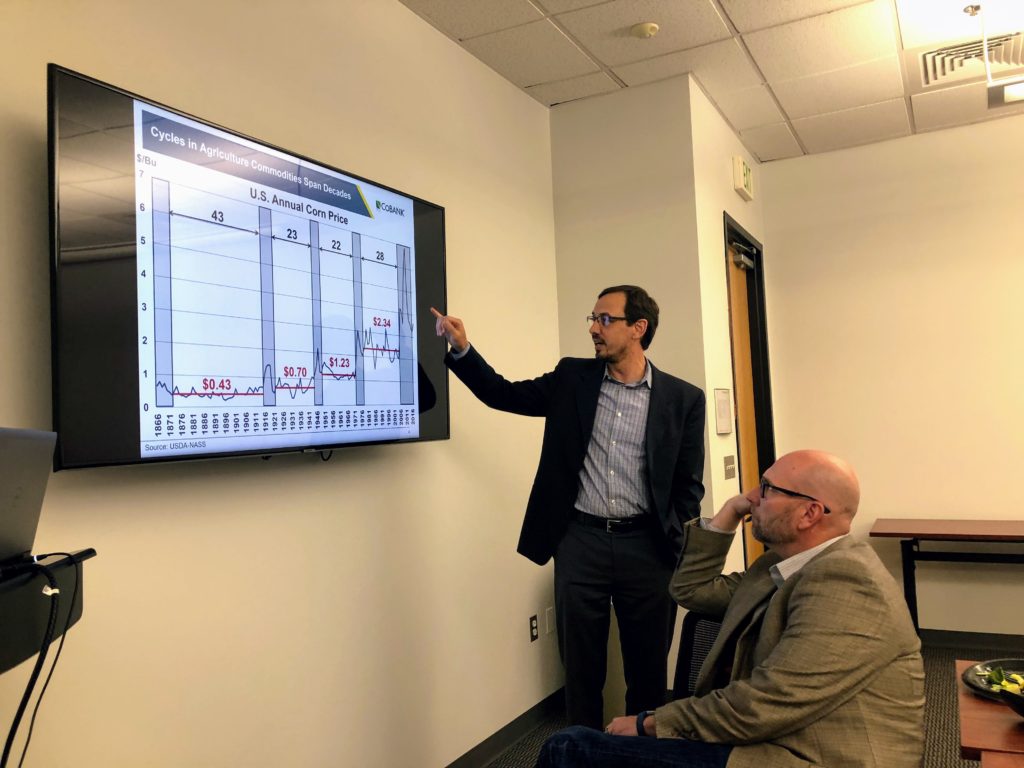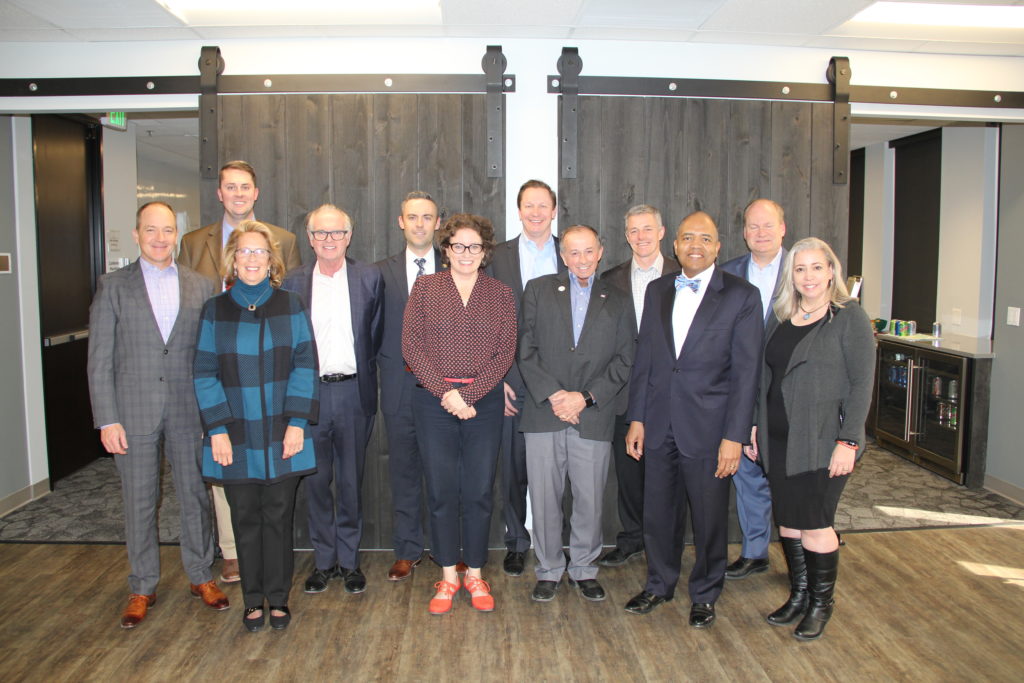— By CFB intern, Gus Gill
Colorado’s vibrant and diverse agriculture sector has served as a significant driver of economic activity within the state for decades. From producing foods consumed by people across the globe to creating valuable fibers that are used in clothing, furniture and a variety of other products, we often find agriculture at the very center of our daily lives. Although the agriculture and food industry has made extraordinary progress in recent history, there remains much work yet to be done. Protecting and advancing agriculture and rural Colorado is the core mission of Colorado Farm Bureau.
Recognizing this, Colorado Farm Bureau assembled a group of thought leaders from across the state to assess the opportunities and challenges facing agriculture and the state’s rural communities now and in the foreseeable future. This team, known as the Future of Agriculture in Colorado Task Force (FACT), began the important conversation of how agriculture and rural Colorado can continue to thrive as time goes on.

The result – a visionary report forecasting what the community and industry landscape will look like in the coming years, and recommending actions leaders should take to ensure a successful tomorrow.
The idea for FACT dates back to 2006 when the first Task Force initially formed to provide an outlook for how agriculture would impact the state through the year 2025. Last year, as Colorado Farm Bureau celebrated a century of excellence during the organization’s 100th Anniversary Centennial Celebration, the time was opportune to reconvene the Task Force, evaluate the pre-existing FACT report, and make necessary updates to address changes that occurred within the industry and society since the original project’s inception.
To broaden the scope of this dialogue and get a unique array of perspectives around the table, the 2019 FACT consisted of members representing various business, civic and political entities whose work both influences and is influenced by agriculture. By bringing a broad and diverse group of participants to the table, CFB hoped to build on the success of the original report, and broaden it to include input and insight from a more diverse group of leaders.

FACT participants met face-to-face on several occasions. During these day-long gatherings, the members would present information pertinent to issues affecting the industry, analyze data and statistical evidence relevant to the matters being discussed and collaborate on developing potential solutions to resolve problems threatening the advancement of agriculture and rural Colorado.
“…one of the most important things to ensure the future success of agriculture was for rural and urban populations to keep in mind that their success depends on one another,” — Dr. James Pritchett
Following the adjournment of each meeting, the membership continued to conduct research and create content to be included in a finalized FACT report. The Task Force’s recommendations apply to a variety of populations at all levels from farmers and ranchers to elected officials, influencers and community members The finalized document comprises four primary sections; Rural Health Care, Natural Resources, Technology & Infrastructure and Rural Economic & Social Change.
By design, the report is not exhaustive. According to Dr. James Pritchett, dean of the College of Agricultural Sciences at Colorado State University and chair of the 2019 FACT, “Some readers will wonder why a topic is omitted, or why the task force did not have more to say about an idea. Members decided to focus on areas where they could provide the most input and insight.”
Choosing to direct attention towards a few specific sectors of the industry, as opposed to attempting to target every issue impacting agriculture, allowed the group to dive deeply into each of the four subject areas outlined in the report. Throughout the participant discussions, the idea of interdependence was a recurring theme.
“The Task Force felt one of the most important things to ensure the future success of agriculture was for rural and urban populations to keep in mind that their success depends on one another,” shared Dr. Pritchett. “Rural areas need urban ones as much as urban areas need rural ones.”
Considering that the FACT met prior to the onset of COVID-19 and the resultant shutdown of the U.S. economy, the information and recommendations contained within this report are even more significant in today’s climate. Many of the underlying problems in agriculture and rural Colorado are more pronounced now and will likely remain so in a post-COVID-19 world.

Don Shawcroft, president of Colorado Farm Bureau and the chief architect of the project is optimistic the report will help in recovery efforts.
“The work of the Task Force is now significantly more important in light of COVID-19,” he said. “As rural and agricultural leaders look for ways to build resilience in our industry and communities, this report will be a valuable resource.”
The findings presented in the document will be helpful to policymakers and may provide creative ideas to help the agriculture industry and rural communities recover from the consequent economic impacts of the pandemic.
The extensive work and collaborative effort that went into generating the 2019 FACT report will benefit Colorado for years to come. As in every industry, agriculture will continue to be confronted with many obstacles as we look ahead. In addressing these challenges and suggesting viable solutions to help alleviate these issues, the FACT provided a great service to our state and its people.
Listed below are the participating members of the Task Force:
Dr. James Pritchett, Chair
Colorado State University
Dean of the College of Agricultural Sciences
Matthew Barry
National Western Center Authority
Chief Development Officer
Sara Blackhurst
Action22
President and CEO
Alex Carter
Colorado Education Initiative
Vice President, Implementation
Carlyle Currier
Rancher
Vice President – Colorado Farm Bureau
Tanner Ehmke
CoBank
Manager, Knowledge Exchange Division
Karen Gerwitz
World Trade Center Denver
President and CEO
Mike Kopp
Colorado Concern
President and CEO
Shawn Martini
Colorado Farm Bureau
Vice President of Advocacy
Gregg Moss
City of Westminster
Innovation Coordinator
Commissioner Steve O’Dorisio
Board of County Commissioners
Adams County
Kevin Patterson
Connect for Health Colorado
CEO
Christine Scanlan
Keystone Policy Center
President and CEO
Don Shawcroft
Rancher
President – Colorado Farm Bureau
George Sparks
Denver Museum of Nature and Science
President and CEO
Barbara Walz
Tri-State Generation and Transmission Association, Inc.
Senior Vice President of Policy and Compliance/Chief Compliance Officer
Chad Vorthmann
Colorado Farm Bureau
Executive Vice President



